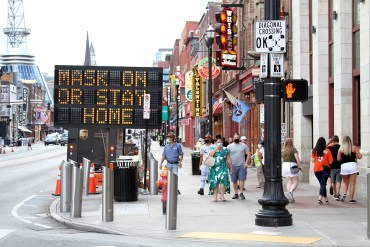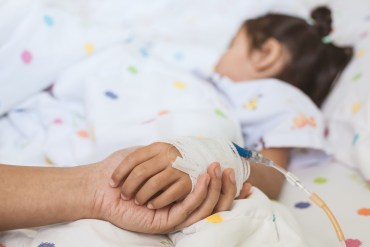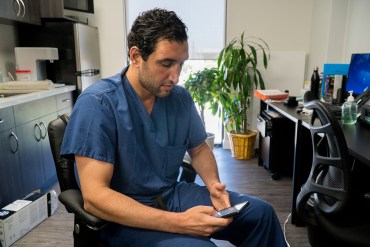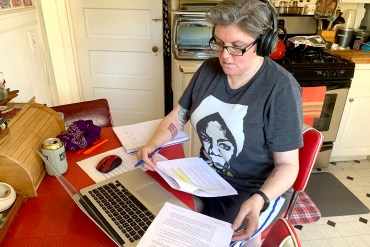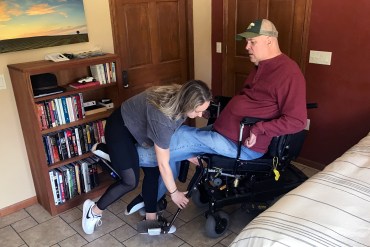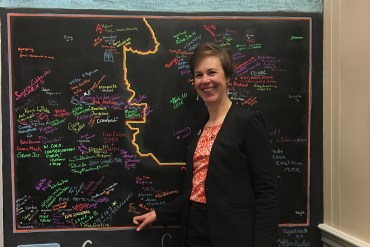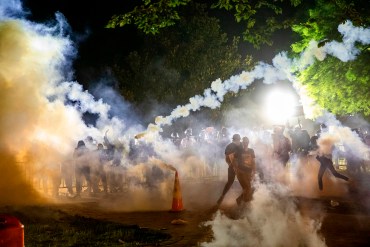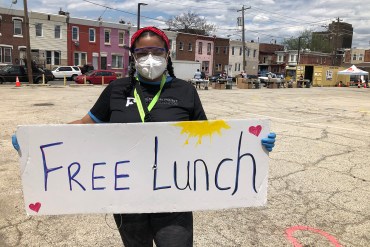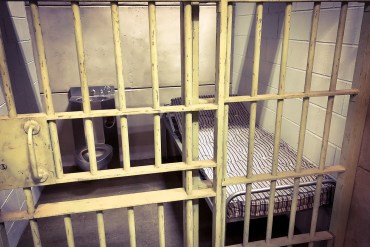Will Labor Day Weekend Bring Another Holiday COVID Surge?
Epidemiologists are having a hard time predicting whether Labor Day will be like the Fourth of July and Memorial Day, when celebrations fanned the flames in coronavirus hot spots around the South and West.
Another COVID Mystery: Patients Survive Ventilator, But Linger in a Coma
Doctors are diagnosing a new stage of COVID-19 recovery: patients who take much longer than usual to regain consciousness after coming off a ventilator. And a growing number of doctors are worried some patients aren’t being given the time they need to wake up.
Deadly Mix: How Bars Are Fueling COVID-19 Outbreaks
In some states, bars and taverns have brought legal challenges to the coronavirus restrictions that have slowed sales and business.
Swab, Spit, Stay Home? College Coronavirus Testing Plans Are All Over the Map
2020 will be a year like no other on college campuses, as every institution makes its own rules. Some have no plans to routinely test students for the coronavirus; others aim to test every student and staff member twice a week.
Back to Life: COVID Lung Transplant Survivor Tells Her Story
The first known coronavirus patient in the U.S. to undergo a double lung transplant is now strong enough to share the story of her ordeal.
Contact Tracers in Massachusetts Might Order Milk or Help With Rent. Here’s Why.
Massachusetts offers support and resources for people isolating because of COVID-19 — helping them make choices that keep everyone safe. Experts say that is work that more states need to fund.
In Rural Missouri, Latinos Learn to Contain and Cope With the Coronavirus
In a town in the southwestern corner of Missouri, where COVID-19 has disproportionately affected Latino immigrants, language barriers and economic pressures among factory workers have stymied efforts to slow the virus that causes the disease.
When Green Means Stop: How Safety Messages Got So Muddled
Philadelphia is in the “restricted green” reopening phase. What does that mean? And why does the U.S. have so many different pandemic safety rules?
In Texas, More People Are Losing Their Health Insurance as COVID Cases Climb
During the pandemic, nearly 700,000 additional Texans have lost health insurance. The Lone Star State already had more uninsured people than any other. It has given people with COVID symptoms pause before seeking medical care.
Scientists Want to Know More About Using UV Light to Fight COVID-19 Spread
‘Germicidal’ ultraviolet light technology has a proven track record against indoor transmission of tuberculosis and other airborne microbes. It’s now being used in some restaurants and on subways.
Why Doctors Keep Monitoring Kids Who Recover From Mysterious COVID-Linked Illness
About 1,000 children worldwide have had the condition known as MIS-C — Multisymptom Inflammatory Syndrome in Children. Children’s hospitals around the U.S. are trying to keep tabs on young people after they recover from the ailment, to gauge any long-term effects.
Cities Brace For ‘Collision Course’ Of Heat Waves And COVID-19
Rochester, New York, and other cities have already weathered the first blasts of excessive heat, and they have done it while cooling centers and spray parks have been closed due to the pandemic.
Drinking Surged During The Pandemic. Do You Know The Signs Of Addiction?
Experts say a bit of extra drinking isn’t a problem for many people, but they recommend watching out for specific behaviors that signal addiction.
Injured And Uninsured, Protesters Get Medical Aid From LA Doctor
A Los Angeles ophthalmologist’s offer on Instagram has ballooned into a loose network of physicians providing medical care to protesters who were injured while rallying against police brutality and racism. While clashes with the police have died down in some parts of the country, some protesters are seeking care for festering wounds from days-old injuries.
California Hits Up Libraries and Tax Offices To Recruit 20,000 New Disease Detectives
As California begins one of the largest contact-tracing training programs in the country, many of the new recruits will be librarians: who are known to be curious, tech-savvy and really good at getting people they barely know to open up.
Pandemic Upends The Lives Of People With Disabilities — And Of Their Caregivers
Wisconsin already faced a shortage of caregivers who offer crucial health services and independence to their clients. Then the pandemic struck. In a survey of nearly 500 Wisconsinites with disabilities and older adults, every respondent said the pandemic had disrupted their caregiving service.
Public Health Officials Face Wave Of Threats, Pressure Amid Coronavirus Response
Public health officials are confronting growing pressure — and threats — across the country as the backlash to the coronavirus response continues. At least 27 state and local health leaders have resigned, retired or been fired since April across 13 states.
Tear-Gassing Protesters During An Infectious Outbreak ‘A Recipe For Disaster’
Health researchers are among the voices calling for police to stop using tear gas and pepper spray on protesters, because these chemical irritants can damage the body in ways that can spread the coronavirus and increase the severity of COVID-19. One example: Tear gas and pepper spray can sow confusion and panic in a crowd, causing people to rip off their masks and touch their faces, leading to more contamination.
Pandemic Presents New Hurdles, And Hope, For People Struggling With Addiction
Relaxed regulations in response to the pandemic means more access to addiction treatment medications. But recovery programs are accepting fewer people, and the danger of overdose remains high.
As COVID Cuts Deadly Path Through Indiana Prisons, Inmates Say Symptoms Ignored
Since the start of the pandemic, prisoners and their families have contradicted state officials about the conditions inside Indiana prisons. Many inmates report they’ve had no way to protect themselves from close contact with other inmates and staff members. They believe contracting the coronavirus is inevitable.



